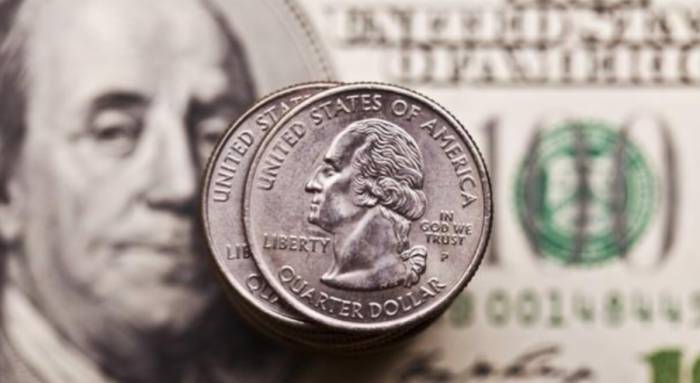German Bankruptcy Fears: US Blocks Gold Recount, Europe May Retaliate
01, Inflation, Interest Rate Hikes
Although the global community is grappling with the threat of high inflation, Europe seems to face a more significant challenge due to the ongoing impact of the energy crisis.
The Financial Times reported that in an interview, the Dutch central bank predicted that the European Central Bank (ECB) will continue to raise interest rates at five meetings before July of next year in an attempt to control inflation.
In the meantime, the vice president of the ECB also indicated that within the next three months, the Eurozone may need to raise interest rates by 50 basis points.
Although the Eurozone's GDP grew by 2.1% year-on-year in the third quarter, the current Consumer Price Index (CPI) remains as high as 10.6%. It is evident that inflation will continue to erode growth in the future, making it difficult for the Eurozone to maintain such a growth rate.
02, US Suppression of Europe
The euro, since its inception over 20 years ago, has gradually become the second-largest currency in the world. Its payment proportion is second only to that of the United States, and the gap is narrowing, posing a significant threat to the US. Consequently, the US is continuously suppressing the euro through economic and financial means.
Advertisement
Previously, the UK had exited the Eurozone, and it is not ruled out that other countries may have to leave the Eurozone in the future due to economic difficulties, with the US potentially playing a role in this.
Since the outbreak of conflict in Europe, the US has continuously imposed sanctions on Russia, directly driving up global energy prices. Moreover, the US has taken this opportunity to export liquefied natural gas to Europe in large quantities, with prices sometimes reaching up to ten times higher.
Furthermore, through continuous interest rate hikes, the US dollar index has been rising, leading to a significant depreciation of the euro exchange rate, which dropped from 1.23 to as low as 0.95 at its lowest point.03, Europe Counters the United States
In terms of the economy, the United States introduced a major weapon in the second half of 2022, which was the Inflation Reduction Act.
Through this legislation, the U.S. is attempting to undermine Europe by attracting top European manufacturers to relocate to the United States.
For these European companies, the U.S. is now very attractive, primarily because of the stable energy supply and relatively cheaper prices.
Many chemical companies in Germany had to reduce production in 2022 due to energy shortages, and some of Germany's automotive industry also faced varying degrees of production cuts due to energy issues.
These companies all imagine that if they move their production lines to the U.S., they will not face these difficulties in terms of energy, ensuring production and thus ensuring revenue. Moreover, the U.S. is now offering additional substantial subsidies, making the appeal even greater.
However, for France and Germany, they cannot tolerate the U.S. poaching European companies in this manner, and both French and German leaders have warned the U.S. in various settings.
Recently, France even indicated that it would promote Europe to introduce its own Inflation Reduction Act to counter the U.S.
04, Gold Misappropriated?
Over the past decade, Germany has been the largest economy in the Eurozone, but now Germany is also facing numerous challenges.German Deputy Speaker Kubicki stated that due to the energy crisis, Germany needs to pay an additional €110 billion to purchase energy products. This money cannot be simply solved by printing more currency, nor can it be addressed by increasing taxes.

He further pointed out that if the energy crisis cannot find a suitable solution in the short term, "Germany could become a bankrupt country."
On the other hand, European countries are becoming increasingly aware that gold plays a very important supporting role for the credit of currencies. Therefore, over the years, European countries have been committed to transporting gold stored at the Federal Reserve back to their own countries.
Previously, countries such as Poland and Germany have successively repatriated some of their gold. However, when Germany proposed to the Federal Reserve that it needed to verify the gold stored in the vault, it was repeatedly unreasonably refused by the United States.
Some Western media have discovered that the Federal Reserve seems to have used gold stored in the United States by other countries. So, is it still safe to store gold in the United States?
Leave a Comment